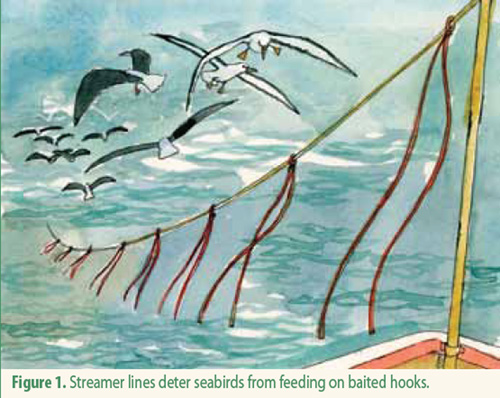The Inter-American Tropical Tuna Commission (IATTC) will hold its 90th Meeting in La Jolla, California, USA at the end of this month. ACAP’s Executive Secretary, Marco Favero will be attending to follow and contribute to discussions on a proposal from the United States to amend Resolution C-11-02 to Mitigate the Impact on Seabirds of Fishing for Species covered by the IATTC.
The proposal aims to replace the existing “two-column” approach to selecting mitigation measures to be utilized by longline vessels to one in line with the Western and Central Pacific Fisheries Commission (WCPFC) measure CMM 2015-03 to be adopted on 01 January 2017 in replacement of CMM 2012-07. It proposes that in “Southern Areas” (south of 30°S) at least two of the following three mitigation methods, line weighting, night setting, and bird-scaring lines, be used simultaneously to be “generally consistent with current advice from the Agreement on the Conservation of Albatrosses and Petrels (ACAP) regarding seabird mitigation techniques”.
However, in “Northern Areas [north of 23°N], the proposal retains the two column approach to provide for additional options for bycatch mitigation measures and includes blue-dyed bait, side-setting, deep-setting line shooter, night setting with minimum deck lighting, tori [bird-scaring] lines, weighted branch lines, and management of offal discharge.”
Adoption of the US proposal by the IATTC will lead to an increase in consistency in required seabird mitigation measures across the southern Pacific Ocean.

Reference:
United States 2016. Amendment to Resolution C- 11-02 to Mitigate the Impact on Seabirds of Fishing for Species covered by the IATTC. Proposal IATTC-90 J-1. Inter-American Tropical Tuna Commission. 8 pp.
John Cooper, ACAP Information Officer, 10 June 2016

 English
English  Français
Français  Español
Español